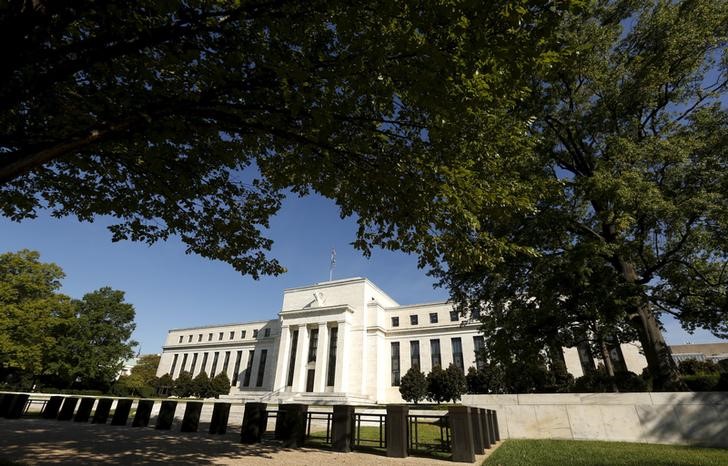By Leigh Thomas
PARIS (Reuters) - With major central bank policy on hold for now, politics will take centre stage in the coming week as the U.S. presidential election enters a new phase with the first televised debate.
Although Fed chief Janet Yellen said on Wednesday the Federal Reserve took decisions independently of politics, policymakers nevertheless found fit to wait until after the November election to get serious about raising rates again.
"The ECB, Fed and even BOE have held their meetings, and the markets can finally focus on something other than monetary policy," Societe Generale (PA:SOGN) analysts wrote in a note.
"We believe that among the things to look out for will be the first U.S. presidential election debate, which ... is likely to set the tone for the two subsequent debates," they added.
While a tense debate is likely on Monday given Republican candidate Donald Trump's penchant for eyebrow-raising statements, the stakes will be high with a Super Bowl-sized viewership of around 100 million Americans expected.
As if European politicians did not have enough on their plates grappling with Britain's exit from the European Union, Italy will start the countdown towards a high-stakes referendum on constitutional reform.
The Italian cabinet is to decide in a meeting on Monday on the date for the referendum on whether to accept the reform already passed by parliament.
With polls suggesting the vote -- expected in November or December -- could be close, and Prime Minister Matteo Renzi having staked his job on the vote, the prospect of a political crisis in Italy could discomfit European leaders.
While central banks have had little success creating inflation in recent years, the Organisation of Petroleum Exporting Countries may have more luck.
With members plus Russia due to hold an informal meeting in Algiers on Wednesday, the organisation may be its closest in years towards agreeing cuts in production quotas, with Saudi Arabia actively seeking a deal.
Riyadh has offered to cut oil production if rival Iran caps its own output this year, four sources familiar with the discussions told Reuters.
While politics will be centre stage, central bankers will not be far away, with a handful of Fed policymakers due to make public appearances that may offer insight into how divided they are about raising rates.
Investors will meanwhile be looking for signs that European Central Bank policymakers are moving towards boosting monetary stimulus at their December meeting when ECB President Mario Draghi speaks at the European Parliament on Monday.
September inflation data due on Friday from the euro zone will give the ECB food for thought, with economists polled by Reuters expecting on average an increase to 0.4 percent, which would be the highest rate since January.
"Euro zone inflation is expected to accelerate in September and the trend for the coming months will be upwards," Unicredit (MI:CRDI) economists wrote in a note.

Elsewhere on the data front, U.S. durable goods orders will be in focus amid an otherwise relatively light flow of economic data stateside.